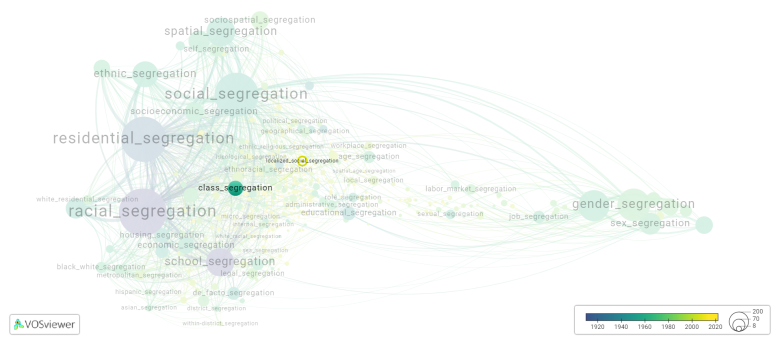Localized social segregation: Difference between revisions
(Creating page) |
(Creating page) |
||
| Line 6: | Line 6: | ||
Localized social segregation refers to the division of society into separate groups based on characteristics such as race, ethnicity, socioeconomic status, or other factors within a specific geographical area. This can result in unequal access to resources and opportunities for individuals in different social groups, leading to social, economic, and educational disparities. Examples of localized social segregation include segregated neighborhoods, schools, workplaces, and social spaces where individuals from different social groups may not interact or have access to the same opportunities. | Localized social segregation refers to the division of society into separate groups based on characteristics such as race, ethnicity, socioeconomic status, or other factors within a specific geographical area. This can result in unequal access to resources and opportunities for individuals in different social groups, leading to social, economic, and educational disparities. Examples of localized social segregation include segregated neighborhoods, schools, workplaces, and social spaces where individuals from different social groups may not interact or have access to the same opportunities. | ||
==See also== | ==See also== | ||
==Related segregation forms== | |||
Localized social segregation is frequently discussed in the literature with the following segregation forms: | |||
[[social segregation]], [[class segregation]], [[sociospatial segregation]] | |||
[[File:localized_social_segregation.png|780x780px]] | |||
For the complete network of associated segregation forms, see: | |||
year of publication https://tinyurl.com/2235lkhw | |||
Louvain clusters https://tinyurl.com/2d8wg5n3 | |||
betweenness centrality https://tinyurl.com/223udk5r | |||
disciplines where segregation forms first appeared https://tinyurl.com/244d8unz | |||
==References== | ==References== | ||
==Notes== | ==Notes== | ||
Revision as of 14:36, 27 September 2024
Date and country of first publication[1]
2016
Italy
Definition
Localized social segregation refers to the division of society into separate groups based on characteristics such as race, ethnicity, socioeconomic status, or other factors within a specific geographical area. This can result in unequal access to resources and opportunities for individuals in different social groups, leading to social, economic, and educational disparities. Examples of localized social segregation include segregated neighborhoods, schools, workplaces, and social spaces where individuals from different social groups may not interact or have access to the same opportunities.
See also
Related segregation forms
Localized social segregation is frequently discussed in the literature with the following segregation forms:
social segregation, class segregation, sociospatial segregation

For the complete network of associated segregation forms, see:
year of publication https://tinyurl.com/2235lkhw
Louvain clusters https://tinyurl.com/2d8wg5n3
betweenness centrality https://tinyurl.com/223udk5r
disciplines where segregation forms first appeared https://tinyurl.com/244d8unz
References
Notes
- ↑ Date and country of first publication as informed by the Scopus database (December 2023).
At its current state, this definition has been generated by a Large Language Model (LLM) so far without review by an independent researcher or a member of the curating team of segregation experts that keep the Segregation Wiki online. While we strive for accuracy, we cannot guarantee its reliability, completeness and timeliness. Please use this content with caution and verify information as needed. Also, feel free to improve on the definition as you see fit, including the use of references and other informational resources. We value your input in enhancing the quality and accuracy of the definitions of segregation forms collectively offered in the Segregation Wiki ©.
Localized social segregation appears in the following literature
Salvati L., Ridolfi E., Pujol D.S., Ruiz P.S. (2016). Latent sprawl, divided Mediterranean landscapes: Urban growth, swimming pools, and the socio spatial structure of Athens, Greece. Urban Geography, 37(2), 296-312. Routledge.https://doi.org/10.1080/02723638.2015.1058115
